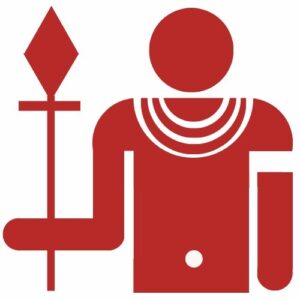South African Breweries has announced finalists of its 4th annual Social Innovation Awards 2014. The final contenders are competing for the 1-Million Rand grand prize.
The innovations range from products to processes selected according to their scalability as well as its commercial value. Each must also benefit the SAB Foundation’s target beneficiaries who are women, youth, people living with disabilities and people living in rural areas.
A total of 18 innovations will move through to the final judging phase adjudicated by an independent panel of business and industry experts later this month. The final winners will be announced at an awards ceremony in October.
“Innovative solutions to economic and social issues in South Africa can be a powerful driving force behind bringing positive change for people within local low-income communities and individuals.
“Through the Social Innovation Awards, the SAB Foundation is encouraging more individuals to empower themselves as entrepreneurs and in turn empower hundreds of others by providing them with affordable access to resources and services that can improve their lives,” says Bridgit Evans, SAB Foundation Manager.
Evans says there has been a marked increase in the number and quality of innovative solutions presented since the first Social Innovation Awards in 2011.
Since its start in 2011, the SAB Foundation has invested in a total of 40 social innovations through a financial commitment of more than R10-million.
Apart from the first place prize of R1-million, the 2nd place winner receives an investment of R500 000 and 3rd place, R300 000. Several seed grants of between R100 000 and R150 000 will also be awarded to other deserving innovations finalists.
The 2014 SAB Foundation Social Innovation Awards finalists are:
- Bee-Pak – the world’s first flat pack and insulated bee hive system designed to optimise the health, survival and production capacity of bees, as vital plant pollinators by, amongst others, enhancing resistance to common pests and predators.
- SensiCardiac – a hosted software solution which runs on Windows PC and iPhone and assists primary care clinicians differentiate between pathological and cardiac murmurs.
- HearScreen – transforms a smartphone into a calibrated device for early identification of disabling hearing loss.
- The Lightie – a test-tube shaped solar powered light bulb designed to bring affordable lighting to low-income homes.
- Safe and Sound Technology – an external sensory device for the hearing impaired. The wrist device allows the individual to connect with the outside world through various sounds.
- Durban Fashion Online (DFO) – a virtual business incubation system that provides skills support and mentorship to young fashion designers.
- Ultrasonic Smart Blind Stick – device helps visually impaired detect obstacles without aid.
- Rapidom – small and inexpensive technique-free condom applicator.
- Driving Ambitions – driver training for individuals with limited mobility.
- DrugSign – mobile application designed to detect drug use.
- Mobile Registration Device – rugged user-friendly mobile device used to identify and register individuals in deep rural areas of South Africa for healthcare and social services amongst others.
- 5 Star Stoves – a two-plate gas stove for clean cooking and heating for use in poor-energy households
- Barrowmate – a low cost crop sprayer that accurately dispenses liquid avoiding waste and minimising expenses.
- VeinAID – Assisted injection device that locates the precise location of a patient’s vein to prevent hit and miss instances.
- Brilliant Skincare – affordable oncologist approved and clinically tested skincare product for use by cancer patients during treatment.
- AEON Free Energy Access Remote Control – wireless energy harvested from telecommunications towers and used in low power devices e.g. remote controls and cellphones.
- CandidaFree Natural – a natural plant extract for the treatment of fungal infections. The innovation resulted the awarding of a PhD at the University of Pretoria.
- The EcoBrick Exchange – encourages communities to produce the EcoBrick building range as a method of income generation and used for the construction of schools and community centres. The construction technique allows for the reuse of all materials



